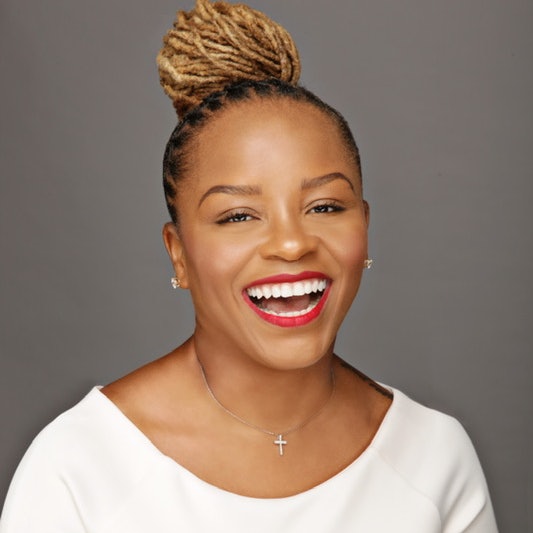
Create a free Diverse: Issues In Higher Education account to continue reading. Already have an account? Enter your email to access the article.
Supporters of Historically Black Colleges and Universities (HBCUs) welcomed Howard University’s announcement late last week of Dr. Ibram X. Kendi’s appointment Dr. Crystal A. deGregory
Dr. Crystal A. deGregory
Kendi, a historian and antiracist activist, has made waves since publishing Stamped from the Beginning, which won the 2016 National Book Award for Nonfiction. Most recently, he was the Andrew W. Mellon Professor in the Humanities at Boston University, where he founded the Center for Antiracist Research under a five-year charter in 2020.
With Kendi’s departure comes news that the center’s charter was not renewed and is now set to close. The Jamaica, New York native—named one of TIME’s 100 Most Influential People in 2020—likely saw this coming. His tough and controversial leadership decisions, set against a backdrop of the university’s retreat from diversity efforts, led to a 2023 investigation into the center’s finances and culture. However, an external review found no evidence of financial mismanagement.
Still, that fight was nothing compared to the stage IV colorectal cancer he had already faced at only 35. And similarly, it paled in comparison to the stage IV metastatic breast cancer diagnosis his wife, Sadiqa Kendi, received in 2023. A renowned injury prevention expert and pediatric emergency physician, she will serve as Chief Medical Officer for Safe Kids Worldwide and Associate Division Chief of Academic Affairs and Research at Children’s National Hospital.
“Watching her accomplish her goals, watching her joy,” declared Kendi, “is one of the ultimate joys of my life.”
In sharing the news of his appointment, the 2005 alumnus of Florida A&M University (FAMU) described his move as “the most fulfilling career choice I have ever made.” He added, “I can’t wait to get started.”
He promises that his work at Howard will continue to dismantle racist structures and welcome scholars from across the African diaspora in community and solidarity. If Kendi’s track record is any sign, more good work will come. His appointment at Howard follows that of Pulitzer Prize-winning journalist Nikole Hannah-Jones, who joined Howard as the inaugural Knight Chair in Race and Journalism and established the Center for Journalism & Democracy, as well as Howard alumnus Ta-Nehisi Coates, who currently serves as Sterling Brown Endowed Chair. Many hope their return can be a prolonged watershed moment for prominent Black scholars returning to HBCUs.
Many hope their return signals a deeper commitment to prioritizing Black scholarship in ways that long-suffering, lesser-known Black scholars have not always experienced—even at HBCUs.
For what it’s worth, I share in this hope. But hope, and even “love, without support” – to borrow from Spelman and Bennett colleges President Emerita Dr. Johnnetta B. Cole “cannot do.”
Reflecting on my journey, I first experienced the power of Black research centers at Fisk University, where I arrived as a freshperson in 1999. My earliest memory of the campus was stepping into a single-story stone house turned office that housed the historic Race Relations Institute (RRI), which pioneering Black sociologist and Fisk’s first Black president, Charles S. Johnson, formally founded in 1958.
I was meeting my advisor, the formidable yet cool Dr. Raymond Winbush—Ray, for short. Today, he is a research professor and the Director of the Institute for Urban Research at Morgan State University.
I can still see, smell—hell, almost taste—the old stone house where I met my first advisor to pick classes. The floor, maybe hardwood original to the structure, was either covered in cheap industrial carpet or a patchwork of small rugs. I can’t recall which just now. But I’m sure it creaked when I walked across it, almost as though it would give way. It didn’t. Plastered across its walls were bookshelves filled with Black subject matter books, Black liberation flags, photos of Black freedom figures, and posters—I remember some calling for the freeing of Mumia Abu-Jamal and others demanding reparations.
The RRI is also now defunct. Its quiet closure sometime in the 2000s signaled that even the most decorated HBCU research centers are not assured longevity or the perpetual institutional support needed to sustain them.
It was at least a decade later before Fisk’s John Lewis Center for Social Justice was established in 2019 to carry on a similar mantle. It and so many other fledgling HBCU research centers, including the Mary McLeod Bethune Institute for the Study of Women and Girls at Bethune-Cookman University – where I serve as founding director – can only hope to one day have a fraction of the financial and human resources Kendi and Hannah-Jones now bring to bear.
Even so, the most well-resourced HBCU research centers operate within a system of inequity. While there is a great disparity in “flagship” HBCU research centers’ resources – and the rest of us – this pales in comparison to the cleavage between us all and research centers at historically predominately-white institutions. This dynamic reminds us how power operates within academia, just like in the wider world.
So, despite our perceived real or imagined differences, Kendi, Hannah-Jones, me, and others like us who share the heavy burden of leading these HBCU centers amid administrative upheavals and shifting political mores must continue to serve others, not ourselves.
It’s not always easy. Still, the calling is clear. Black scholars, especially those at HBCUs, must continue our efforts to build our institutions as best we can to ensure that Black scholarship and Black people endure—for generations to come.
That is the work. That is the calling.
Dr. Crystal A. deGregory is the director of the Mary McLeod Bethune Center for the Study of Women and Girls at Bethune-Cookman University in Daytona Beach, Florida. Her forthcoming book “Greatest Good: Nashville’s Black Colleges, Their Students, and the Fight for Freedom, Justice, and Equality” is under contract with Vanderbilt University Press.

Recent Comments